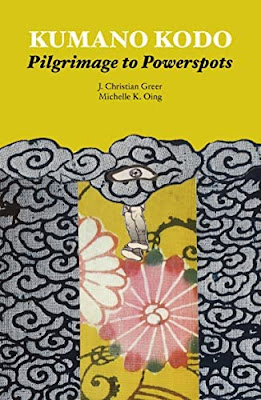[If you read this blog, you can probably guess I have a soft spot for underrated writers. I not only promote Robert Anton Wilson here, I also write about Robert Shea (who can use more help than Wilson, as far as I can tell). I did a website devoted to George Alec Effinger years ago that I need to revive.
Another writer I like is R.A. Lafferty. A story I nominated for the Prometheus Hall of Fame Award, "Primary Education of the Camiroi," has bee named a finalist. The members of the Libertarian Futurist Society will vote on the award next year, and a winner will be announced in a few months. Here is the official press release -- The Management.]
2023 PROMETHEUS HALL OF FAME AWARD FINALISTS ANNOUNCED
HEINLEIN, LAFFERTY, LEWIS, LONGYEAR AND PRATCHETT RECOGNIZED
The Libertarian Futurist Society has selected five finalists for the 2023 Hall of Fame Award for Best Classic Fiction.
This year's finalists – first published between 1945 and 2000 - include novels by C.S. Lewis and Terry Pratchett, a Robert Heinlein novelette, an R.A. Lafferty story and a collection of linked stories by Barry B. Longyear.
* “Free Men,” a 1966 novelette by Robert Heinlein first published in his collection “The Worlds of Robert A. Heinlein” and later collected in “Expanded Universe,” offers a strong defense of freedom and American ideals. The novelette focuses on the aftermath of an invasion and U.S. occupation after a nuclear “20 Minute War” and how a small band of heroic but practical guerrilla fighters survive, adapt and resist tyranny at great cost.
* “Primary Education of the Camiroi,” a 1966 short story by R.A. Lafferty reporting on a fact-finding trip by an Earth delegation to study education practices on the planet Camiroi. The story offers a scathing and satirical critique of the top-down approach and lack of rigor in public/government education, arguably more relevant now than when it was first published. Besides incorporating flashes of Lafferty’s deadpan original voice and distinctive brand of humor, the story shows how to train youth to be competent and capable adults – rather than serfs – who can accept liberty and its concomitant responsibilities.
* That Hideous Strength, a 1945 novel by C.S. Lewis (Book 3 of his Space Trilogy), revolves around a sociologist and his wife who discover a totalitarian conspiracy and diabolical powers scheming to take control of humanity, in the guise of a progressive-left, Nazi-like organization working for a centrally planned pseudo-scientific society literally hell-bent to control all human life. Its cautions about the therapeutic state and the rising ideology of scientism (science not as the value-free pursuit of truth, but as an elitist justification for social control) seem prescient today.
* Circus World, a 1981 collection of linked stories by Barry B. Longyear that imagines how Earth’s circus troupes have evolved on a far-distant planet into a circus- and magic-defined culture without a government but with strongly individualistic, voluntary and cooperative social norms and only One Law, designed to make it nearly impossible to impose government regulations or other legislation, that helps the planet’s citizens peacefully cooperate in resistance against coercive human invasion and statist tyranny.
* The Truth, Terry Pratchett’s 2000 novel, first nominated in 2001 for a Prometheus in the Best Novel category, is part of his satirical but historically informed Discworld series. With his usual tongue-in-cheek style, this novel focuses on politics and the development of newspapers, when a struggling scribe who’s the son of a privileged family conceives the notion of producing his newsletter with a new printing press. All too timely in its focus on misinformation and its theme of freedom of speech and press, the novel portrays how journalists report the facts (or not) and communicate “the truth” amid pressure from competing political factions.
In addition to these nominees, the Prometheus Hall of Fame Finalist Judging Committee considered three other works: The End of Eternity, a 1955 novel by Isaac Asimov; “The Trees,” a 1978 song by Neal Peart and Rush; and “Or Give Me Death,” a 1955 short story by Donald Westlake.
The final vote will take place in mid-2023. All Libertarian Futurist Society members are eligible to vote. The award will be presented at a major science fiction convention and/or online.
Nominations for the 2023 Hall of Fame Award can be submitted to committee chair William H. Stoddard (halloffame@lfs.org) at any time up to Sept. 30, 2023. All LFS members are eligible to nominate. Nominees may be in any narrative or dramatic form, including prose fiction, stage plays, film, television, other video, graphic novels, song lyrics, or epic or narrative verse; they must explore themes relevant to libertarianism and must be science fiction, fantasy, or related genres.
First presented in 1979 (for Best Novel) and presented annually since 1982, the Prometheus Awards have recognized outstanding works of science fiction and fantasy that dramatize the perennial conflict between Liberty and Power, favor private social cooperation over legalized coercion, expose abuses and excesses of obtrusive government, critique or satirize authoritarian ideas, or champion individual rights and freedoms as the mutually respectful foundation for peace, prosperity, progress, justice, tolerance, civility, and civilization itself.
The awards include gold coins and plaques for the winners for Best Novel, Best Classic Fiction (Hall of Fame), and occasional Special Awards.
The Prometheus Award is one of the most enduring awards after the Nebula and Hugo awards, and one of the oldest fan-based awards currently in sf.
The LFS welcomes new members who are interested in science fiction and the future of freedom. More information is available at our website, www.lfs.org and Prometheus blog (lfs.org/blog/).

























.png)





,_by_John_Trumbull.jpg)







